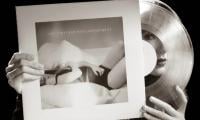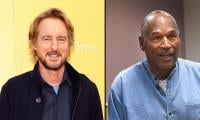LAHORE: While the Pakistani Interior Ministry is claiming on daily basis it is trying to put its best foot forward to spot and cancel phony National Identity Cards and passports etc, another exclusive research undertaken by the "Jang Group and Geo Television Network" on this thorny subject reveals that even developed countries like the United States, Australia and those part of the European Union etc are also struggling, despite having learnt bitter lessons since 9/11, to get hold of the manufacturers, sellers and buyers of these fake identity and travel documents.
Europe’s trade in forged and stolen passports is so out of control that the United States had given France, Belgium, Germany, Italy and Greece a stern warning in January 2016 to clamp down in fake passport trade sparked by migrant crisis or lose visa-free travel status that is being used by 20 million people from 38 countries per year - most of them in Europe.
The United States Department of Homeland Security's threat had come in response to the growing alarm over the rising number of lost and stolen documents in the European Union, which has doubled in five years.
According to some recent reports surfacing in the European media, the number of forged passports in the Middle East has also rung alarm bells, despite the fact that Interpol in possession of data on 250,000 stolen or lost Syrian and Iraqi passports, including blank documents.
The January 28, 2016 edition of "Daily Mail" had reported: "Five European countries have been warned to clamp down on the fake passport trade or lose visa-free ESTA travel to America, sources say. US Secretary of State John Kerry is said to have issued warnings to Germany, Belgium, France, Italy and Greece after two bombers from the Paris terrorist attacks were found to have stolen passports. It comes as security officials from Homeland Security and Interpol saw a worrying rise in the number of stolen passports being reported. A "Mail Online" investigation into buying passports revealed just how easy it was, when reporter Nick Fagge bought the official document for $2,000 and it was ready in just four days."
Interestingly, it was also during January 2016 that around 3,000 Indians had got into the UK with fake papers sold by Portuguese gangs exploiting loopholes in the immigration system.
Published since 1896 and having an average daily circulation of over 1.7 million copies in March 2014, the January 24, 2016 edition of the "Daily Mail" had stated:"Thousands of Indians entered Britain illegally using fake documents bought from criminals exploiting an immigration loophole exposed by The Mail. The forged papers entitle holders to obtain EU passports using a bizarre but entirely legitimate backdoor which gives those living in former Portuguese colonies the right to come to Europe. An estimated 3,000 Indians have entered the UK in this manner with the help of a gang operating in Lisbon, London and Leicester, paying the criminals up to £22,000 a time."
In United Kingdom, according to an April 4, 2016 report of the BBC, fake passport seizures at UK borders was at a five-year high just over a month ago.
Quoting the British Home Office data, the BBC had stated: "The number of forged passports seized at UK borders has reached a five-year high, with nearly 1,100 being confiscated in 2014. Figures obtained by the BBC show 1,099 forged documents were seized at ports and airports in 2014, the last year for which statistics were available. The Home Office declined to provide figures for individual ports. It said disclosure would prejudice the prevention and detection of crime or the operation of immigration controls. Some 1,074 forged passports were confiscated in 2010, 1,024 in 2011, 895 in 2012, 1,082 in 2013, 1,099 in 2014 and another 528 between January and June 2015. Figures include existing passports that have been tampered with and documents counterfeited from scratch."
Meanwhile, the October 24, 2014 edition of the "USA Today," which has a circulation of 1.8 million copies in 2012, had maintained: " Many researchers suggest perhaps testing agents during the hiring process to tap people who naturally have a talent for matching faces correctly. Electronics may hold some answers too. The Transportation Security Administration will test an $85 million scanning system that electronically scans passports and then matches the document with the travel itinerary, and can spot tampered passports. The United States "e-Passport" chips are also supposed to help cut down on fraud, with the (legal) passport holder's information also stored on the chip. But of course, just like those Interpol searches that many countries don't do, the efforts rely on agencies adapting to the new travel order. And sometimes with agents, that's not so easy."
A May 18, 2015 report of a Melbourne-based morning tabloid newspaper "Herald Sun" had revealed that more than 1000 suspected Australian passport fraud cases had been investigated in the past three years and about 100 fake passports had been seized.
Published since 1840 and having a circulation of 530,000 from Monday to Friday in 2009, the "Herald Sun" had added: "And tens of thousands more Australian travel documents are being reported lost or stolen every year. The revelations come as the government wrestles with the fate of scores of Australian passport holders fighting with terror groups. In one of the most concerning cases a Canberra court was told in July last year a former Australian Federal Police counter-terrorism member was found to have hidden two foreign passports and a Russian bride with an apparently forged passport from his AFP bosses."
The renowned Australian newspaper had further said: "The former Russian soldier and policeman came to Australia in 1991 and worked with the AFP for a decade before his ex-girlfriend accused him of stalking her and investigations revealed he had allegedly used protected AFP information to track her new partner. Documents released to the Herald Sun by the Department of Foreign Affairs and Trade reveal 65 Australian passports suspected of being forged or tampered with were detected in the past three financial years."
In September 2014, police officers in Bulgaria had discovered that Muslim refugees heading for Germany were carrying 10,000 "Turkey-made" fake passports, which were supposed to be sold or given to terrorists.
Bulgarian media houses had reported that the fake Syrian passports were being sold forabout $1,500 each—and the fact that many of the "refugees" could afford to buy multiple passports was yet another indication of the bogus nature of their claims to be "asylum seekers."
This is what the world's largest newspaper, the "Wall Street Journal," had reported on November 1, 2015: "There are no reliable figures on how many Syrians use counterfeit passports to board international flights. But smugglers estimate it is 1%-5% of those heading to Europe. With thousands of Syrians making the journey, the underground market in fake travel documents is thriving, traffickers say. In the first half of this year, Syrians also topped the list of those caught using forged documents to travel into the EU’s Schengen zone. With 258 Syrians caught, Syrians accounted for more than 10% of those discovered using false papers."
New York-based English-language international daily newspaper "Wall Street Journal," which had recorded a circulation of about 2.4 million copies including nearly 900,000 digital subscriptions as of March 2013, had gone on to write: "Fake passports range in price from the easiest to forge to the hardest. The Spanish passport, at a cost of $1,450, is the cheapest. A French or US passport is about $3,000. Counterfeit passports often include pages filled with fake visa stamps to add an air of authenticity. Some forgers have even mastered the ability to re-create holograms, a security feature of many passports."
According to the CTD spokesman, the two were attempting to enter Punjab from Khyber Pakhtunkhwa
Foreign Office's silence on the US threat to impose sanctions on Pakistan for economic agreements with Iran
President Zardari express views while talking to the visiting Chairman of China International Development Cooperation...
Kundi emphasised that recent electoral outcomes indicated a public preference for parliamentary cooperation over...







